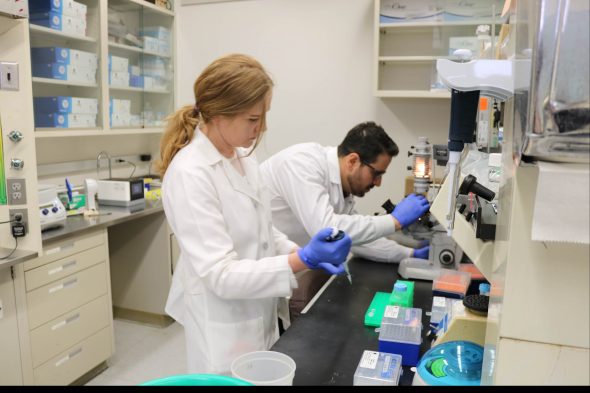Single cell sequencing enables combination cancer therapy
Analysis of single cancer cells may allow for highly individualized cancer therapy, according to a new paper in Nature Communications published by researchers at the University of Illinois Chicago.
Using tissues from patients who underwent cancer surgery, the researchers have shown that individual cancer cells reveal information about potential tumor responses to therapies that can help physicians prescribe more effective, targeted cancer treatment.
Tumors are not made up of a homogenous mix of cells, explained Elizaveta Benevolenskaya, professor of biochemistry and molecular genetics at UIC and corresponding author on the paper.
“Cancer cells within tumors represent a mix of several cell populations and these different populations may respond to therapy differently,” said Benevolenskaya, who also is a member of the University of Illinois Cancer Center. “A drug may be effective at killing most of the cells, but other cells may be tolerant to that therapy and survive. These cells are the origin of recurring cancer. By analyzing hundreds of genes from many individual cancer cells, we can identify the different cell populations that make up the tumor, and then prescribe therapy based on what targets each cell population.”
Alexandre Aissa, Majd Ariss, Cammille Go, Alexandra Rader, Ryan Conrardy, Alexa Gajda, Klara Valyi-Nagy, Mary Pasquinelli, Lawrence Feldman, Stefan Green and Maxim Frolov of UIC; Abul Islam of University of Dhaka, Bangladesh; and Carlota Rubio-Perez and Nuria Lopez-Bigas of the Institute for Research in Biomedicine are co-authors on the paper.
This work was supported by funding from UIC and by grants from the National Institutes of Health (R01CA211095, R35GM131707).

